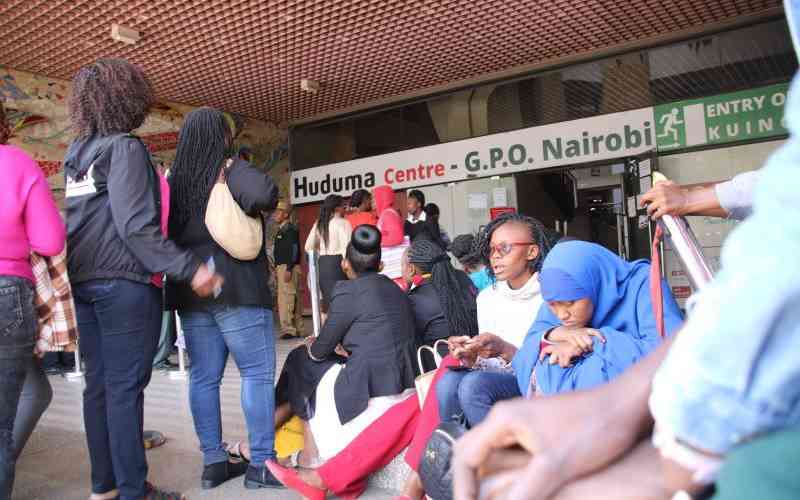×
The Standard e-Paper
Kenya’s Boldest Voice

Huduma Number registration queue as Nairobians sit in exhaustion at G.P.O registration for Huduma Namba mass registration exercise reaching the deadline nearing to the 18th of may ending of the exercise [David Gichuru, Standard]
A lobby group has asked the High Court to bar the government from launching a new digital identification system citing a waste of public funds.